We are committed to support HIV/AIDs infected and affected people reach their wholeness
About US
.jpg)
- OYUGIS INTEGRATED PROJECT
- Oyugis integrated project is a non-profit organization that supports the less fortunate persons infected or affected with HIV. We are located within Oyugis town opposite St. Peter Catholic Church. For over twenty years we have been supporting the vulnerable with education, food, clothing, housing and empowerment programs for women and youth. We appreciate you for being part of our community. With the support of our friends and neighbors like you, we have been able to accomplish a lot over the past years. Currently we have sponsoring over 50 orphans, providing food to the handicaped, offering free medical support to over 2000 HIV positive clients who visit our dispensary every year and offering vocational training to teenage girls who are victims and early pregnancy and school drop out. Your kind donation of books, clothes, sanitary pads, textile and food will save lives and bring hope to the most venerable persons in our community. To make your contribution more visible we are pleased to recognize your company in our meetings as well as our newsletters highlighting your generosity. Your feedback is very much appreciated.
seminar for its Home-Based Care (HBC) volunteers
Home-Based Care (HBC) Guidebook
The launch of the HBC Guidebook marks a significant milestone in the Oyugis Integrated Project’s dedication to compassionate and sustainable community care. We extend our gratitude to all who contributed to its development and look forward to the continued impact this guide will bring to our caregivers and the community.
Empowering the next Generation
Shirikisho Crafts Students Design African Bags and Build Their Own Brand Shirikisho Crafts, an empowering initiative under the Oyugis Integrated Project (OIP), is transforming lives and fueling dreams in Oyugis, Kenya. Recently, a group of young women enrolled in Shirikisho's craft program has embarked on an exciting venture: designing authentic African bags with the goal of creating their own brand. Driven by their passion and guided by mentors, these students are crafting vibrant, stylish bags that celebrate African heritage and creativity. The project is as much about skill-building as it is about sparking entrepreneurship. The students work with various materials and techniques, blending traditional African designs with modern aesthetics to make bags that stand out in the market. This fusion of heritage and contemporary style gives the girls a unique position in the growing world of African fashion and accessory design.
Through this journey, Shirikisho is instilling essential skills that go beyond the workshop. The girls are learning to craft high-quality products and understand branding, marketing, and financial literacy. With support from Shirikisho Crafts, they are being groomed to become entrepreneurs who will one day run their own businesses, manage their own brands, and uplift their communities.
OIP NEWS LETTER ISSUE 295
A Heartfelt Thank You and Latest Updates
 |
OIP HOMEBASED CARE VOLUNTEERS VISITING CLIENTS
Homebased care is
an important mechanism for extending continuation of care by providing in
the home the basic nursing care and treatment necessary for many of the
afflictions that strike PLWHA’s. it also promotes community awareness of
HIV/AIDs, provide powerful examples to motivate behavior change, and decrease
the stigma attached to the disease. Moreover, it enables PLWHAs to maintain
their families and community roles, it is cost effective and it frees hospital
beds and medical personnel for the acutely ill, thus relieving the burden on
the health care system.
WORLD ENVIROMENT DAY 2024
World Environment Day, observed annually on
June 5th, is a powerful reminder of our collective duty to care for the
environment. We can all make a positive impact by embracing sustainable
practices in our daily lives, conserving resources, and advocating for
eco-friendly solutions. Remember, even small steps like planting trees,
reducing waste, or supporting renewable energy contribute to a significant
change. Let's work together to ensure a thriving future for our planet! United
Nations utilizes the occasion to stress on the fact that there is a need to
encourage worldwide awareness and action to protect our environment.
World Environment Day shines a spotlight on
pressing environmental challenges. Each year, a distinct theme is chosen,
tackling issues like climate change, global warming, and deforestation. This
year, the theme of World Environment Day is - Land restoration, desertification
and drought resilience. "According to the UN Convention to Combat
Desertification, up to 40 per cent of the planet's land is degraded, directly
affecting half of the world's population. The number and duration of droughts
has increased by 29 per cent since 2000 - without urgent action, droughts may
affect over three-quarters of the world's population by 2050," the United
Nations official website wrote.
The seed of World Environment Day was sown
in 1972. The United Nations Conference on the Human Environment, held in
Stockholm, Sweden on June 5th, sparked critical discussions on environmental
protection. To honor this pivotal moment, the first official World Environment
Day was celebrated a year later in 1973, and the tradition has continued on the
same date ever since.
World Environment Day raises awareness, mobilizes
action, and promotes environmental sustainability. Through campaigns, events,
and initiatives, World Environment Day inspires individuals and communities to
make changes, fostering a sense of urgency and addressing environmental
challenges for a sustainable future.
Oyugis integrated project staffs and
shirikisho crafts students took the initiative this year to plant more trees
within the compound. It was a quick and enjoyable work. Each participant
planted one tree and we ended up planting forty trees within a span of fifteen
minutes. Last year we did it and we vowed to do it again this year, we look
forward to do more next year. Small steps might produce a tremendous influence
in future. We are happy to participate in this noble course.
WHY ARE TREES IMPORTANT TO THE ENVIRONMENT?
Trees help clean the air we breathe, filter
the water we drink, and provide habitat to over 80% of the world's terrestrial
biodiversity.
Forests provide jobs to over 1.6 billion
people, absorb harmful carbon from the atmosphere, and are key ingredients in
25% of all medicines. Have you ever taken an Aspirin? It comes from the bark of
a tree!
Here are the six pillars that explain why
trees are vital:
Trees clean the air
Trees help to clean the air we breathe.
Through their leaves and bark, they absorb harmful pollutants and release clean
oxygen for us to breathe. In urban environments, trees absorb pollutant gases
like nitrogen oxides, ozone, and carbon monoxide, and sweep up particles like
dust and smoke. Increasing levels of carbon dioxide caused by deforestation and
fossil fuel combustion trap heat in the atmosphere. Healthy, strong trees act
as carbon sinks, offset carbon and reducing the effects of climate change.
BIODIVERSITY
A single tree can be home to hundreds of
species of insect, fungi, moss, mammals, and plants. Depending on the kind of
food and shelter they need, different forest animals require different types of
habitat. Without trees, forest creatures would have nowhere to call home.
Trees help to regulate climate
Trees help cool the planet by sucking in
and storing harmful greenhouse gases like carbon dioxide into their trunks,
branches, and leaves — and releasing oxygen back into the atmosphere. In
cities, trees can reduce ambient temperatures by up to 8° Celsius. With more
than 50% of the world’s population living in cities — a number expected to
increase to 66% by the year 2050 — pollution and overheating are becoming a
real threat. Fortunately, a mature tree can absorb an average of 22lbs of
carbon dioxide per year, making cities a healthier, safer place to live.
HEALTH
Did you know that hospital patients with
rooms overlooking trees recover faster than those without the same view? It’s
impossible to ignore that feeling of elation you get while walking through a
calm, quiet forest. Trees help reduce stress and anxiety, and allow us to
reconnect with nature. In addition, shade provided by tree coverage helps
protect our skin from the ever-increasing harshness of the sun.
Trees help reduce stress and anxiety
Trees have a social impact
SOCIAL IMPACT
From arborists to loggers and researchers,
the job opportunities provided by the forestry industry are endless. We don’t
just rely on trees for work, though. Sustainable tree farming provides timber
to build homes and shelters, and wood to burn for cooking and heating.
Food-producing trees provide fruit, nuts, berries, and leaves for consumption
by both humans and animals, and pack a powerful nutritional punch.
WATER
Trees play a key role in capturing rainwater and reducing the risk of natural disasters like floods and landslides. Their intricate root systems act like filters, removing pollutants and slowing down the water’s absorption into the soil. This process prevents harmful waterslide erosion and reduces the risk of over-saturation and flooding. According to the UN Food and Agriculture Association, a mature evergreen tree can intercept more than 15,000 litres of water every year.
Br. Michael Mbogo
ref: onetreeplanted.org
oyugis integrated project
Training of Home-Based Care Volunteers on Opportunistic Infections in HIV
On January 16, 2025, the Oyugis Integrated Project (OIP) hosted a successful training session for home-based care volunteers at the OIP So...


)%20(1)%20(1).png)






















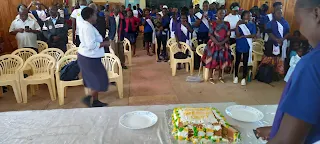






.JPG)
.JPG)









.JPG)

.JPG)

.JPG)

.JPG)

.JPG)









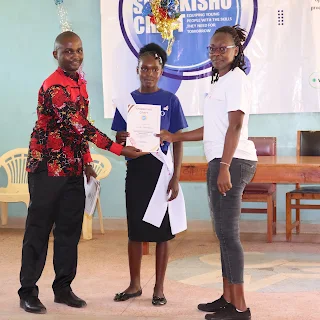

.JPG)























.JPG)

.JPG)

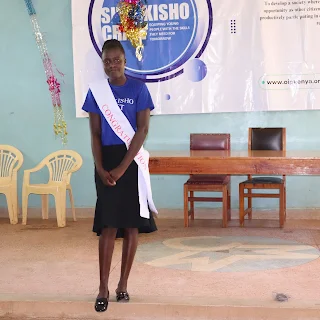
.JPG)



.JPG)



.JPG)

.JPG)

.JPG)

.JPG)

.JPG)

.JPG)

.JPG)
.JPG)

.JPG)








.JPG)

.JPG)

.JPG)
.JPG)

.JPG)

.JPG)
.JPG)

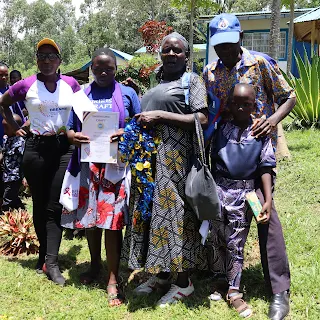
.JPG)

.JPG)

.JPG)

.JPG)
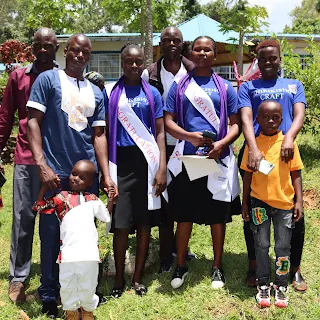
.JPG)

.JPG)

.JPG)

.JPG)

.JPG)

.JPG)

.JPG)

.JPG)

.JPG)

.JPG)

.JPG)

.JPG)

.JPG)

.JPG)

.JPG)

.JPG)

.JPG)

.JPG)

.JPG)

.JPG)

.JPG)

.JPG)

.JPG)

.JPG)

.JPG)

.JPG)

.JPG)

.JPG)
.JPG)
.JPG)
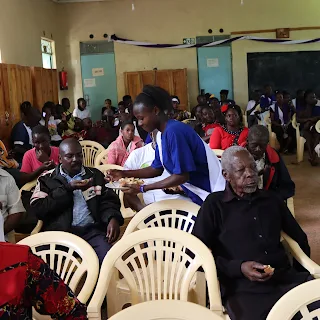
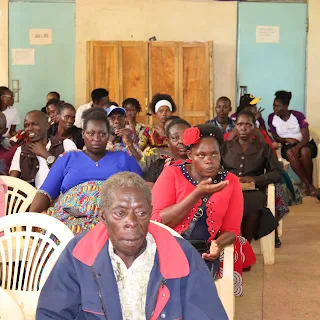
.JPG)

.JPG)
.JPG)
.JPG)


